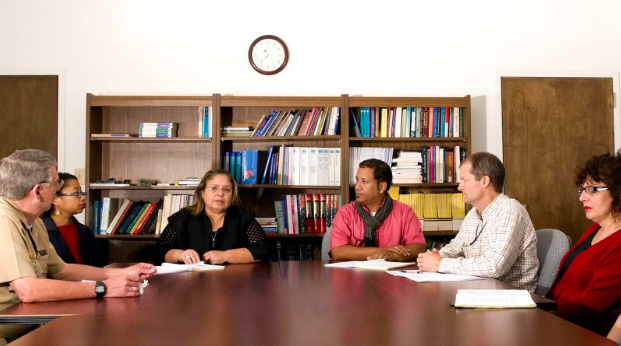An Individualized Education Plan, or IEP, can feel like uncharted territory for a parent or guardian who is unfamiliar with the document. If you are preparing for your first IEP meeting, you may be filled with questions. If so, you are not alone. Having an idea of what to expect and being prepared can help improve your first IEP meeting experience.
What To Know Before You Go
IEPs and Special Education involve legal information and actions. In preparation for your first IEP meeting, you may want to read up on the Individuals with Disabilities Education Act, IDEA, and the laws pertaining to Free and Appropriate Public Education. Being informed on these topics will help you understand your role during the meeting and will hopefully give you confidence in being a part of every discussion. Knowledge and preparation will aid you in becoming the best advocate for your child and his or her education.
Who Will Attend?
The people who comprise an IEP team are unique for each student. However, there are several school staff members who are legally required to be a part of each student’s IEP team. These include a Special Education teacher, a General Education teacher and a Local Education Agent (LEA). You, as the parent or legal guardian for your child, are legally required to be a part of the IEP team. Therefore, at least four attendees will be a part of the meeting and there may be more, depending on the situation. The school psychologist, as well as a therapist if your child is eligible for specific services, may also be at the meeting. In addition, you are permitted to invite anyone who may provide support or additional information concerning your child. You may choose to include your elementary grade student.
What Should I Bring?
In IEP meetings, especially your first, information will be discussed that you will likely want to write down. Therefore, proper note taking supplies will be important. It is advisable to prepare ahead of time and write out your concerns and the topics you would like to discuss so you are able to refer to them during the meeting. A specific time, during the meeting, should be devoted to addressing these questions and issues. IEP meetings can last at least two hours, particularly when developing the initial IEP for your child. Keeping this in mind, you may want to bring a bottle of water with you. Also, it may be helpful to eat before you attend the meeting.
Other than materials, consider whether or not you would like your elementary school aged child to attend the meeting with you. While this is a matter of preference, there are varying opinions on the topic. Therefore, you may want to determine your idea on the matter ahead of time.
What Will Be Discussed?
Most IEP meetings tend to follow relatively common procedures, beginning with a time for introductions. With a room of professionals working together to benefit your student, names and roles provide valuable information for you as a parent or guardian. You may want to write this information down.
At the IEP meeting, you will be given a Procedural Safeguard handbook. Whether or not your team reviews the information during the meeting, you will want to take the handbook home to familiarize yourself with the contents. The Procedural Safeguard can be a valuable resource, providing information on your rights and responsibilities as the student’s guardian.
A starting point of discussions will likely surround your student’s psychological and educational testing results. During this time, you will hear from the professionals involved in your student’s evaluation process. Together, you will talk about the child’s disability or diagnosis and the resulting impact upon the student’s learning.
After reviewing your child’s testing data, the discussion will most likely flow into a conversation about the parent’s concerns. This is when you will want to reference the list you created before the meeting. Due to the legality of IEPs, you will want to have your concerns and requests properly recorded in the document during the meeting.
If your IEP team does not follow a similar meeting progression, which is not unusual, ask when they would like to go over the topic of parent’s concerns.
The IEP will include a section which defines your child’s Present Level of Performance (PLOP), also called the Present Level of Academic Achievement and Functional Performance (PLAAFP). The team will review the data depicting the student’s academic, social/behavioral, and functional performance; including strengths and weaknesses. The team will determine goals for the student based on areas of weakness related to the student’s disability.
Goals are an important part of an IEP, as they detail the specific areas in which the student will work toward growth over the course of the IEP. As in other parts of the IEP, you have a say in the determination of these goals, so do not hesitate to give your opinion during this discussion.
The team will develop a plan designed to support the student in achieving the IEP goals, including the appropriate, accommodations, services, minutes of service, and location where the student will receive the services. Additionally, the team will go over testing options for the student including whether the student will participate in standardized testing or receive alternative testing.
As the meeting concludes, those in attendance will sign the IEP document, acknowledging their participation in the meeting. As the student’s parent or guardian, you will be asked to indicate if you agree with the IEP and to provide your signature approving the implementation.
References
- Ten Common Mistakes Parents Make During the IEP Meeting. Accessed July 19, 2018. http://www.kidstogether.org/IEP/iepd-10-mistakes.htm.
- Stanberry, Kristin. “The IEP Meeting: An Overview.” Understood.org. Accessed July 19, 2018. https://www.understood.org/en/school-learning/special-services/ieps/the-iep-meeting-an-overview.
- “What to Expect in Your First IEP Meeting.” Helping Parents Get What They Need from the IEP Process. Accessed July 18, 2018. https://www.iepguru.com/blog/what-to-expect-first meeting.

